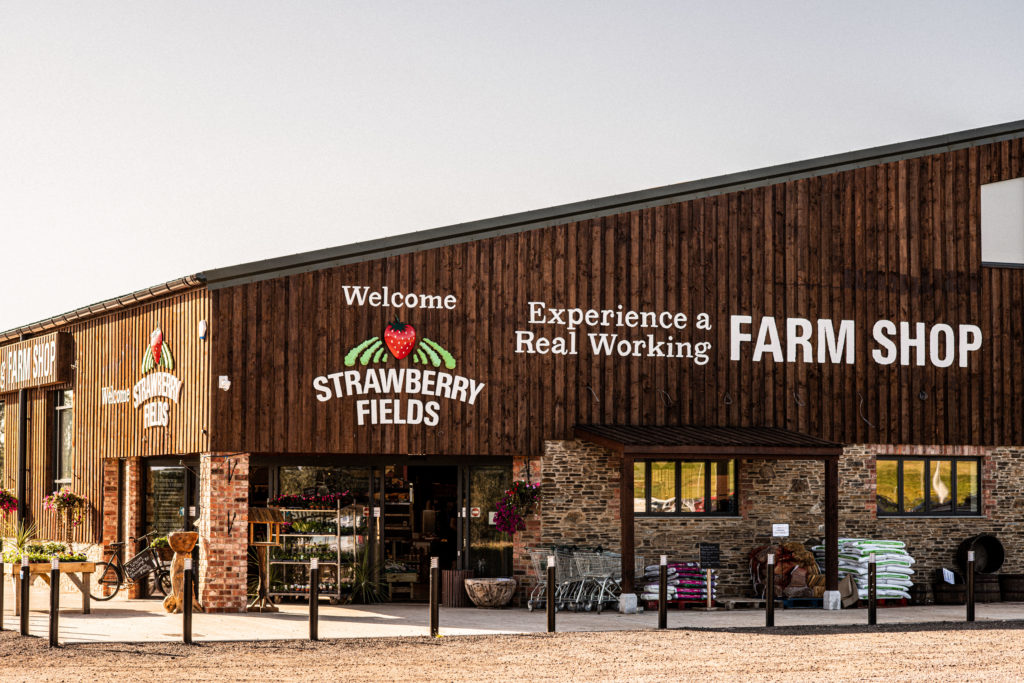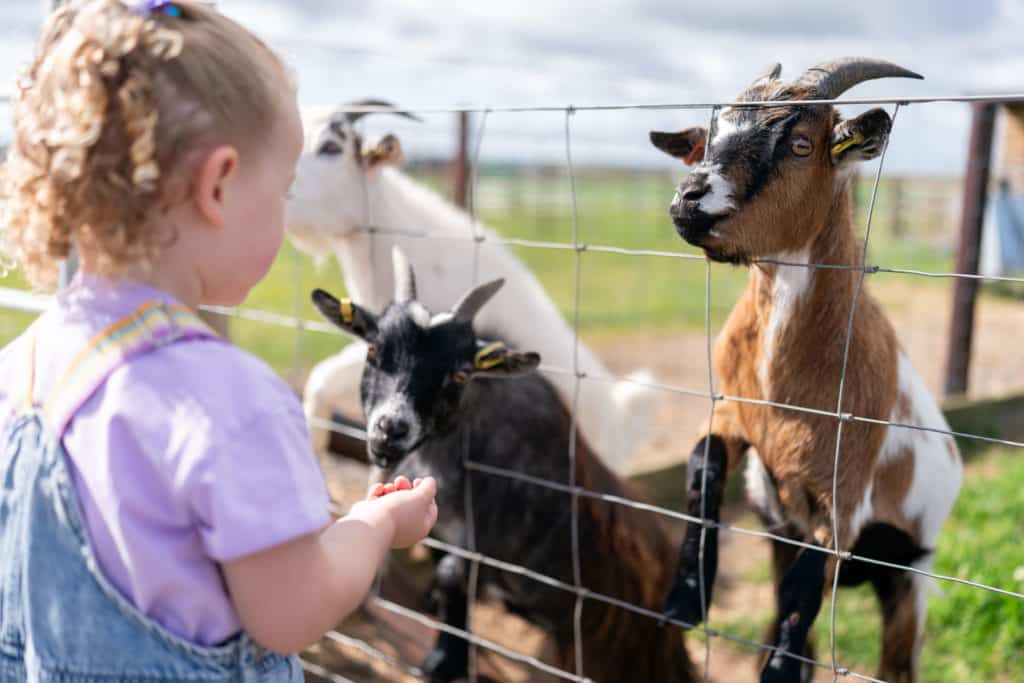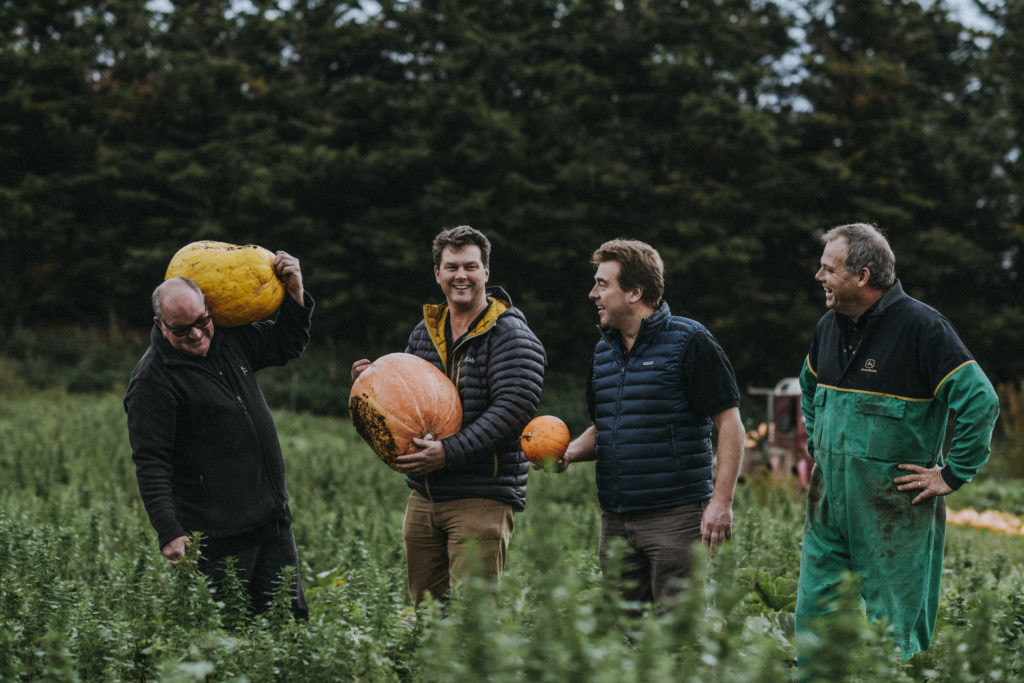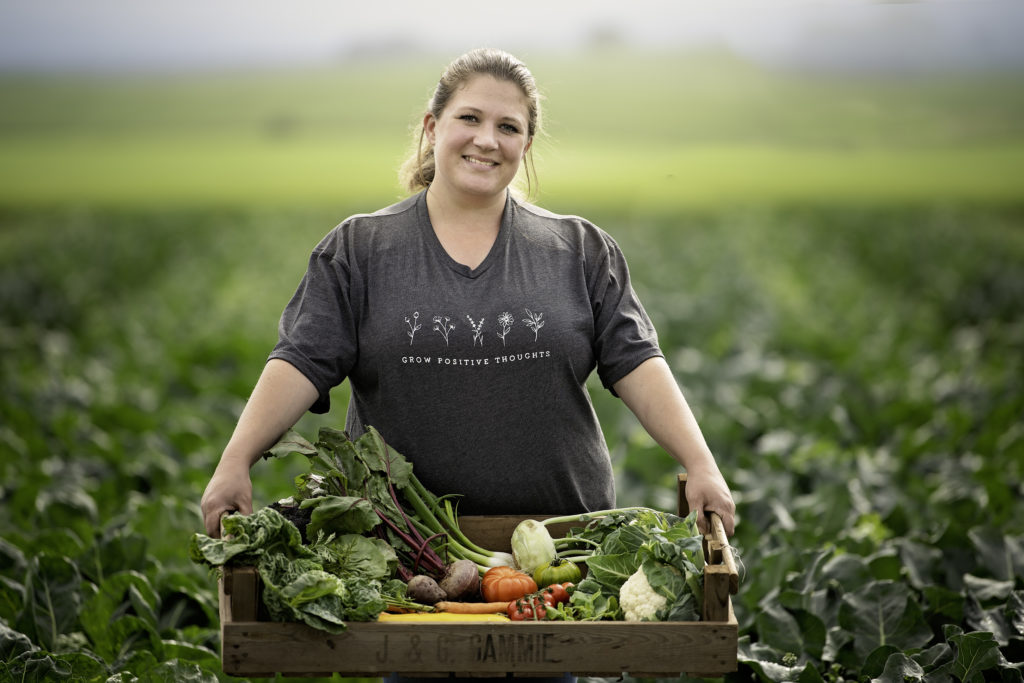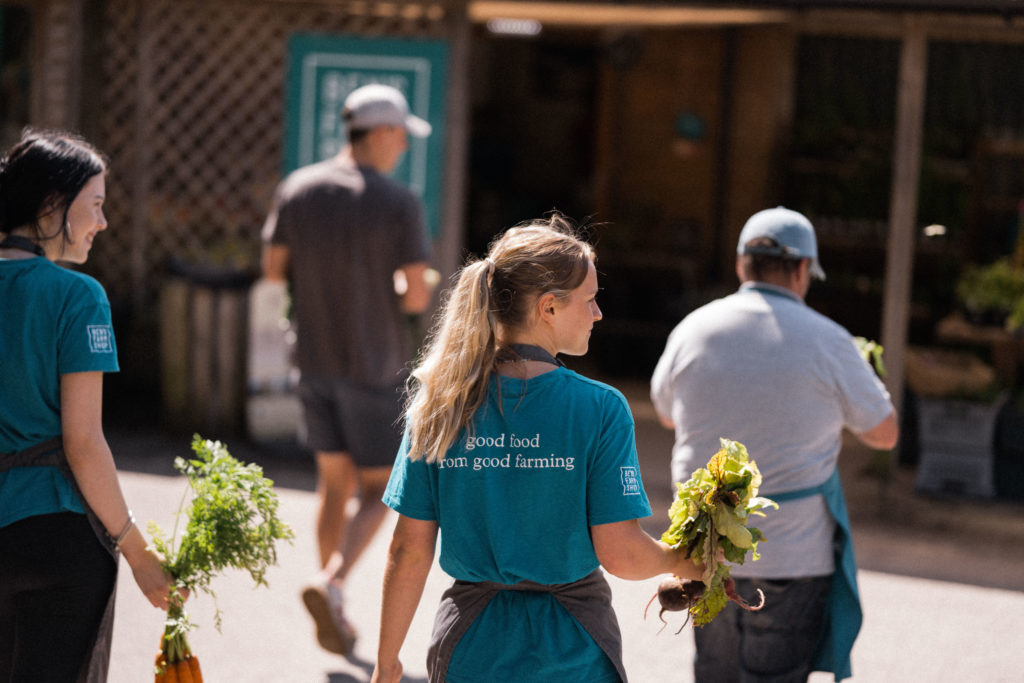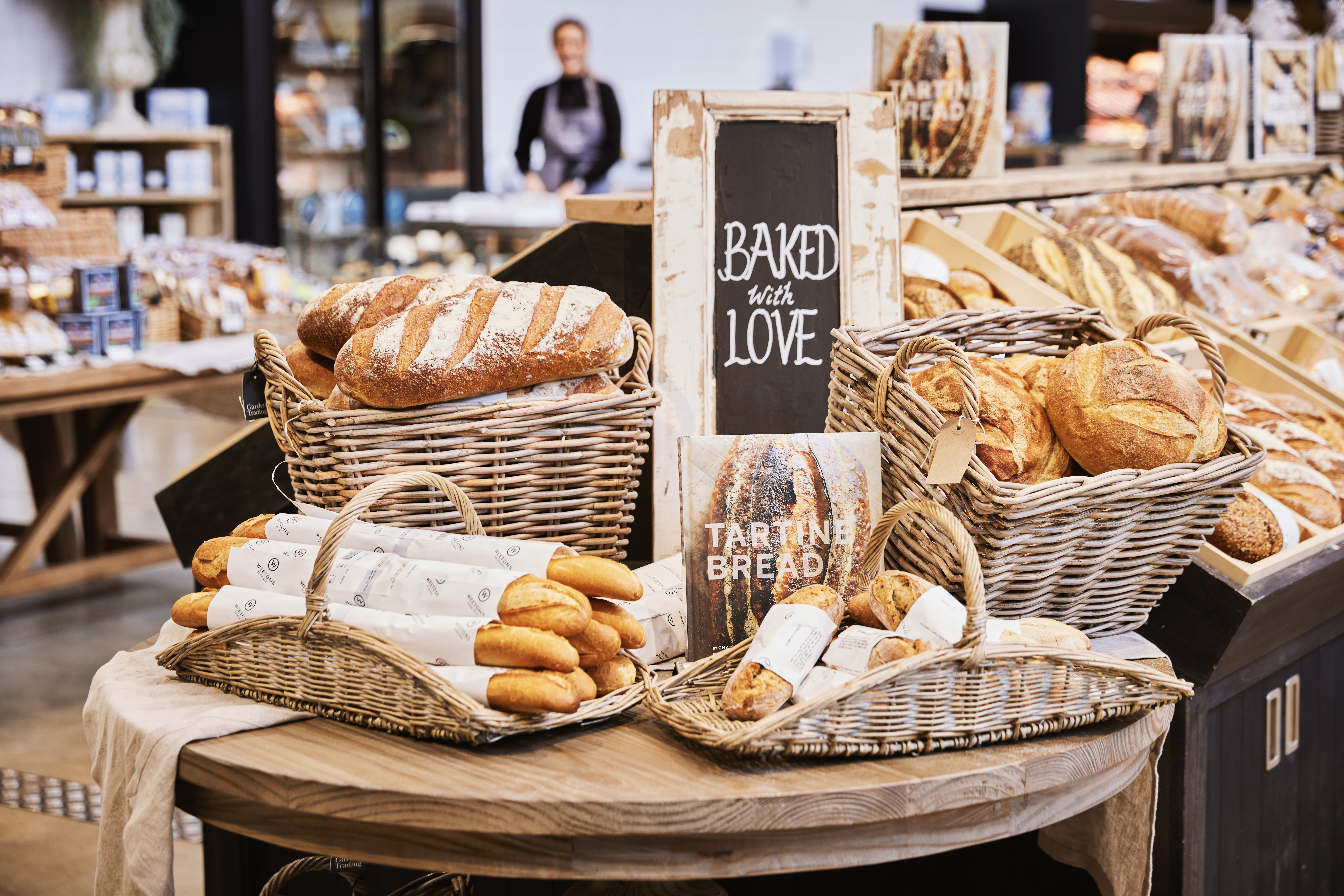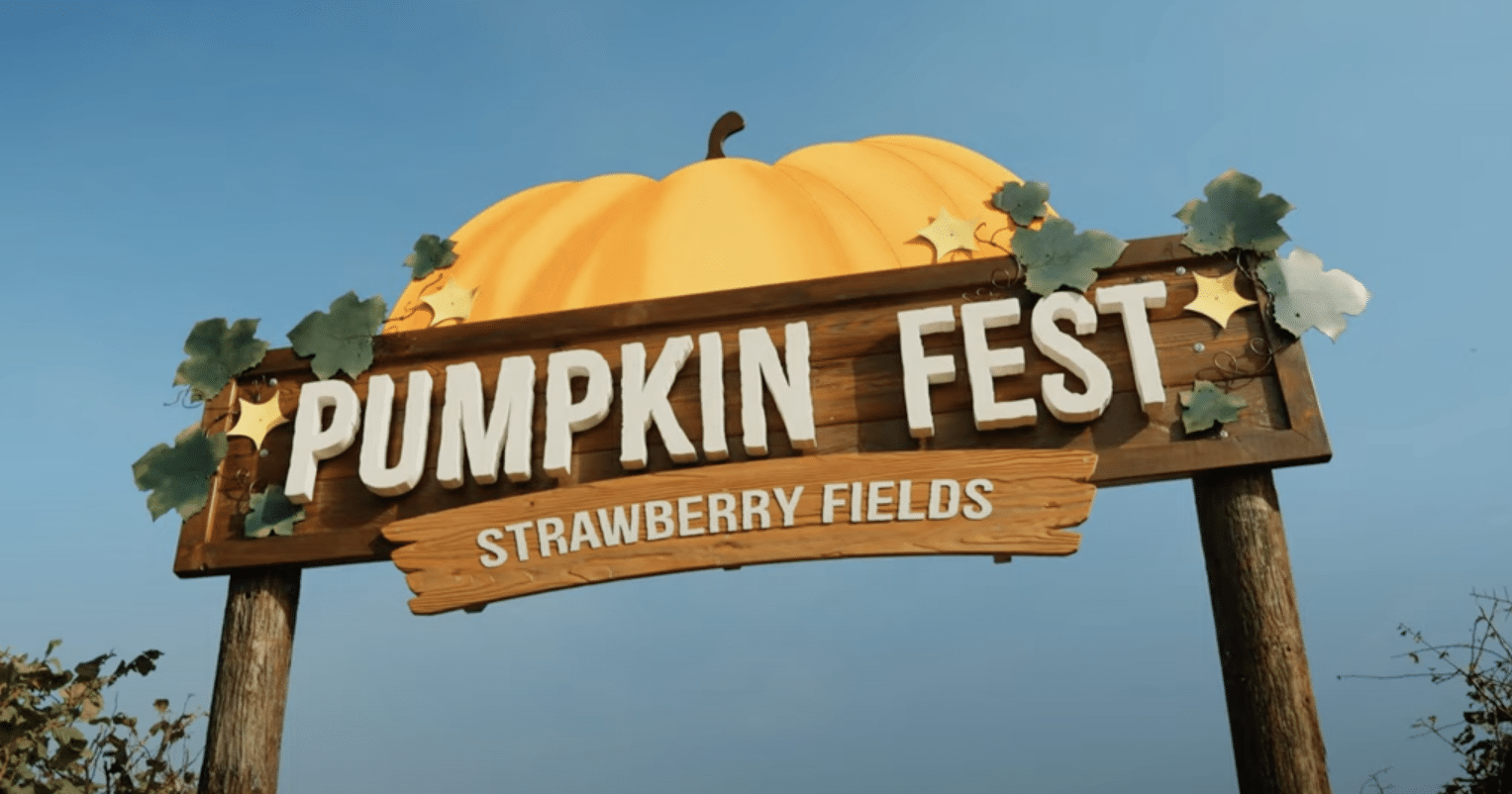
Pumpkin Fest at Strawberry Fields Lifton: a magical autumn day out
As the air turns crisp and the hedgerows glow gold, there’s no better way to celebrate the season than by visiting Pumpkin Fest at Strawberry Fields, Lifton. This is more than just pumpkin picking! It’s a full-on autumn festival, perfect for families and lovers of countryside escapes. Strawberry Fields may be the name, but in autumn the fields in question are alive with thousands upon thousands of orange pumpkins, just waiting to be picked.
For those who love supporting British farms, seeking out local experiences and discovering destination farm shops, Pumpkin Fest at Strawberry Fields is exactly the kind of farm day out to remember: it’s one of the myriad reasons we’ve included Strawberry Fields in The Farm Shop Guide (and in our other guidebook too: The Extra Mile: Delicious Alternatives to Motorway Services).
Visit Pumpkin Fest in 2025: Strawberry Fields Farm Shop’s biggest ever celebration of pumpkins, Halloween, and seasonal British food and fun!
How to get to Strawberry Fields' Pumpkin Fest
Address: Strawberry Fields Farm Shop, Cookworthy Road, Lifton, Devon, PL16 0JL
Travel by car: The farm is accessed via local country roads; look for signage as you approach Lifton from the A30.
Public transport: Depending on where you are, you might take a train or bus to nearby towns and then it’s a short bike ride or taxi ride. (Check local bus routes in late October.)
Parking: On-site parking is usually available, often included in the ticket or for a small fee. Check ahead.
What's on at Pumpkin Fest: highlights and top experiences
At Pumpkin Fest, there’s a lively mix of harvest fun, autumn atmosphere and festive treats. Expect:
huge pumpkin patch: thousands of homegrown pumpkins ready to pick!
Creepy Carnival maize maze for spooky wanderings
barrel train rides through the grounds
photo spots and displays with giant pumpkins, autumnal backdrops and seasonal scenes
magic shows, circus acts, live music and entertainment for children
food stalls, autumn treats (pumpkin spiced items, hot drinks, pies etc.)
Pumpkin Nights evenings with illuminated pumpkins, music and family entertainment (after-dark events)
In short: Pumpkin Fest blends pick-your-own fun, festival atmosphere and seasonal charm.
Pumpkin Fest costs and tickets
General admission tickets are £4.95 for Pumpkin Fest sessions.
The Creepy Carnival Maize Maze is priced separately at around £3.95.
Parking may be included or charged (check the farm’s event pages for current details as it can vary from event to event).
Carers tickets may be available (often free or discounted), check online or call ahead for details if this would be useful for you.
Tickets tend to sell out for popular times: booking in advance is wise and always check ahead for any updates to pricing, opening hours, availability or parking costs.
About Strawberry Fields Farm Shop
Strawberry Fields is not just about pumpkin festivals; it’s one of the region’s celebrated farm shops with a reputation for quality produce, artisan food, a bakery, pantry goods, local meats, and seasonal fruit and veg.
The farm shop often acts as the anchor to the event: visitors can arrive early or linger later to browse, enjoy a meal or a coffee, or to shop locally. The farm shop’s ethos aligns beautifully with what The Farm Shop Guide stands for: showcasing independent, authentic, regionally rooted farm destinations.
By including places like Strawberry Fields in The Farm Shop Guide, we help readers discover not just where to pick pumpkins, but where to shop local, meet producers, enjoy good food, and support sustainable farms.
A taste of the season...and a reason to explore
The Farm Shop Guide celebrates farm-to-fork food all year round, but autumn is when Britain’s farm shops truly shine. From freshly pressed apple juice to hearty soups, home-baked cakes, and steaming cups of hot chocolate, you’ll find every reason to embrace the season in farm shops, farm shop cafés, and farms’ PYO fields across Britain.
Each entry in the book features an independent, hand-picked farm shop. Many have their own cafés, support local producers and stage seasonal and family-friendly events. Many are places that can turn food shopping into a day out for the whole family. Whether you’re in Cardiff, Cumbria or John o’Groats, there’s a pumpkin patch, apple orchard or farm shop or café waiting to welcome you.
Final thoughts
Pumpkin Fest at Strawberry Fields, Lifton, is a seasonal highlight worth planning for. It combines pick-your-own pumpkins, festival charm, live entertainment, and the chance to shop in a thriving farm shop. Whether you’re driving from a nearby county or exploring your backyard, Strawberry Fields is a destination that delivers feel-good fun, autumn colours, and a real connection to a local farm.
For any reader who values knowing where their food comes from, who loves the idea of farms as community hubs, and who wants to support local growers, The Farm Shop Guide is your road map to many more experiences like this. Use the book to find your next pumpkin patch, apple orchard or harvest festival, to visit farm shops that care deeply about quality, sustainability and place.
See you in the patch this October! 🎃
Image below (c) Matt Austin
